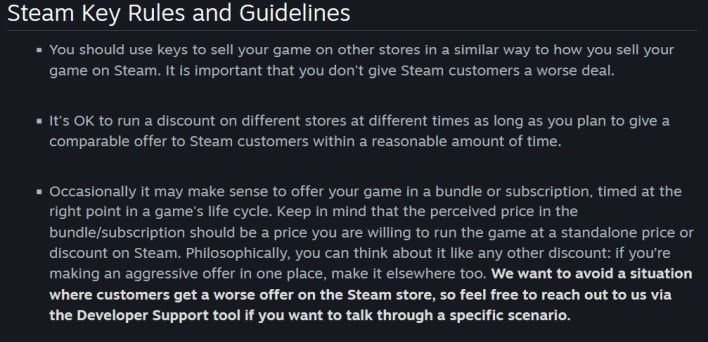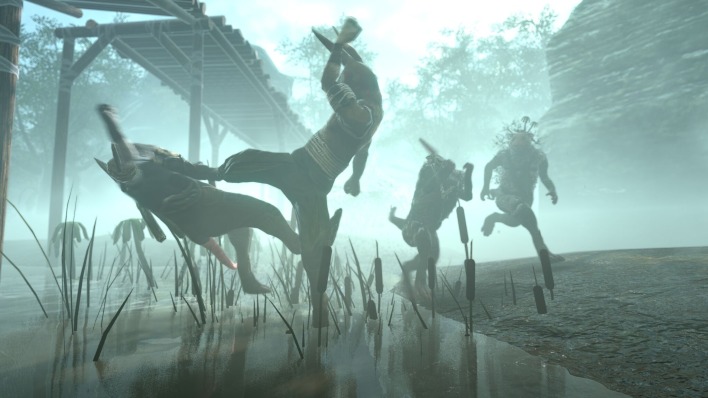Judge Allows Antitrust Lawsuit Over Steam Game Price Policies To Proceed

While Humble got its start doing the bundles, it now mostly serves as a storefront that primarily sells Steam keys. Humble was founded by David Rosen, who is also the fonder of Wolfire Games. Wolfire Games, along with a group of other developers and Steam users, forms the class action that is suing Valve, operator of the Steam storefront, over what it claims to be anti-competitive practices from the storefront-slash-games-service.
In a blog post that he made last year around the time that he filed the suit, Rosen alleges that Valve told him it would delist Wolfire's game Overgrowth from Steam if the company offered it for sale elsewhere—like, on the Humble Store—at a lower price. This is known as a "most favored nation" clause, and it's certainly questionable behavior, but in the legal complaint, Wolfire cites a policy on Valve's Steamworks site that specifically has to do with Steam keys.

Of course, we're not lawyers, and anyway, it's certainly possible that Valve told Rosen that regardless. In fact, the class-action complaint alleges that other developers have been told similar things. There could be a different policy not cited in the complaint, or this could simply have been a misunderstanding. Valve famously allows its employees a high degree of autonomy, and it's also possible this is the work of an overzealous account manager, rather than Valve company policy.

Even in the amended complaint, the judge dismissed more than half of the arguments. The specific issue that will be tested at trial is the truth of the class action's claims that Valve threatened punitive action against developers for selling their games at lower prices on other storefronts, and that the developers were harmed by this. The case could have significant implications on the PC gaming industry, so we'll keep a close watch on how it develops.

